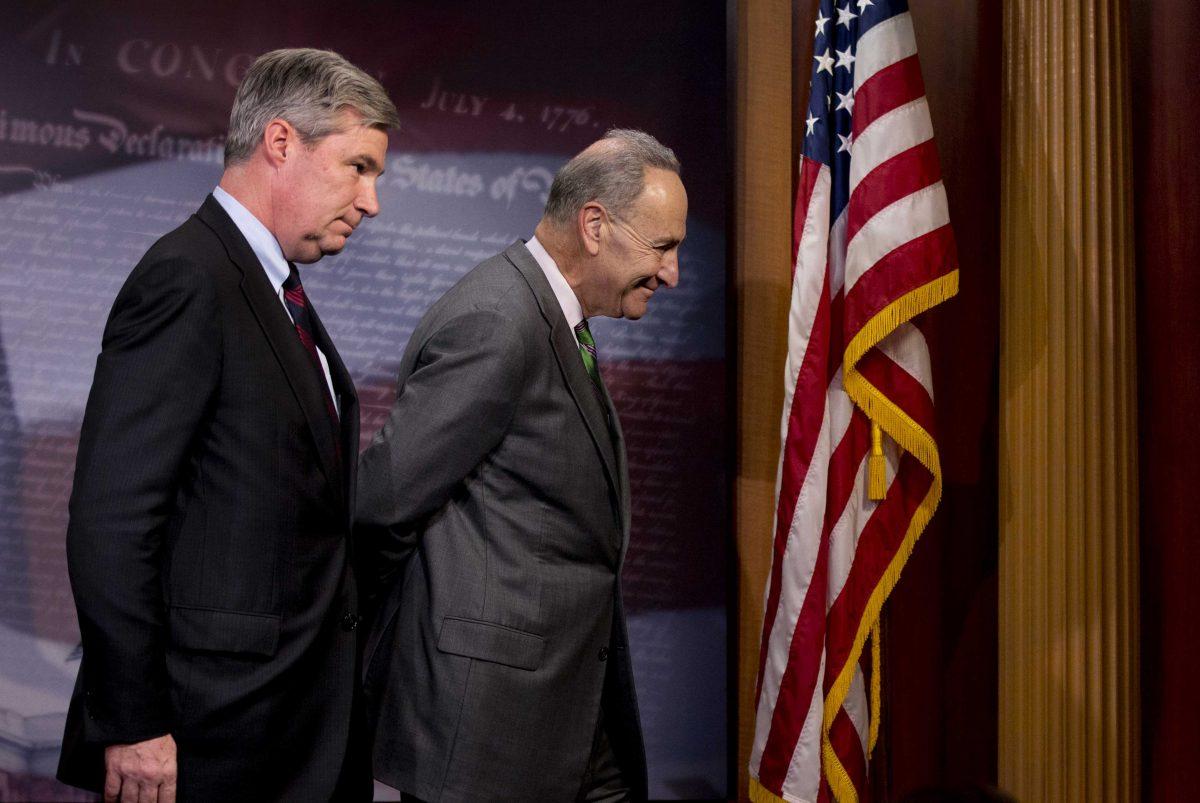The Constitution lives on.
The Supreme Court decided Wednesday to strike down limits on how many candidates or party committees an individual can contribute to. This upholds a base aspect of our country’s existence.
No longer are individual people limited in how much they can express their political views by contributing to people or causes they believe in. The 5-4 decision was divided on the court’s typical ideological lines — the conservatives in the majority and liberals in the minority. This underscores a larger and more basic reality that not everyone is happy with Americans’ right to give their money to whomever they want.
Prior to the decision, an individual could only give $123,200 total to as many candidates and committees they could spread the money over. Now we can give however much we want. This is good, right?
Not everyone thinks so.
Democrats on the Hill have derided the decision as another step toward an eventuality where our elections are glorified auctions for the country’s richest spenders, like the dubious Koch brothers.
Meanwhile, Republicans like Speaker John Boehner tout the decision as a statement of freedom from the high court.
The debate over campaign finance is a tense one and has drawn the ire of politicians from both sides of the aisle, but why?
The basic argument of the majority is that it’s a First Amendment right for individuals to use as much of their wealth as they desire to influence political campaigns. This is a perfectly valid argument based on the principle that donations are a form of expression and ought not to be limited.
The counter argument is that our elections are going up for sale. This is not at all based on the Constitution, but is rather an assertion that people who have a lot of money should not be able to have more influence than people who don’t.
This goes against every principle of our society.
How can our government justify putting limitations on those who succeed the most?
Well, the answer to that question is written in the annals of Democratic Party platforms going back for generations, and while I don’t wholeheartedly disagree with everything the party of donkeys does, they are off their rockers here.
The argument against this decision should not be that there are bad men out there like the Koch brothers who are trying to buy the country one election at a time.
If money needs to be separate from politics, then our politicians need to write in the Constitution that freedom of expression does not apply to elections, the most basic facet of our democracy.
By the way, individual donations are still capped at $5,200 to a single candidate for each election cycle and $32,400 to any party.
So David Koch can only give $5,200 to a candidate in an election. This in no way affects the Citizens United decision that allowed for corporations and unions to donate uncapped amounts through super PACs.
The only fundamental change is that Koch can donate this meager amount to every Republican from California to Maine, if he so pleases.
Why should one man be limited to how many campaigns he can donate to?
He shouldn’t. Luckily, the majority of justices on our Supreme Court agree it should be an American’s right to do so. I just wonder what the others are thinking.
Eli Haddow is a 21-year-old history and English junior from New Orleans.
Opinion: Supreme Court decision expands freedom for campaign donations
By Eli Haddow
April 2, 2014
Sen. Charles Schumer, D-N.Y., right, followed by Sen. Sheldon Whitehouse, D-R.I. leave a news conference on Capitol Hill in Washington, Wednesday, April 2, 2014, where they talked about the Supreme Court decision in the McCutcheon vs. FEC case, in which the Court struck down limits in federal law on the aggregate campaign contributions individual donors may make to candidates, political parties, and political action committees. (AP Photo/Manuel Balce Ceneta)





